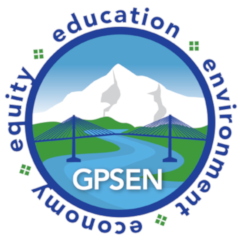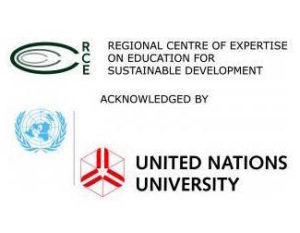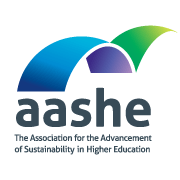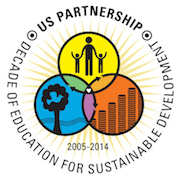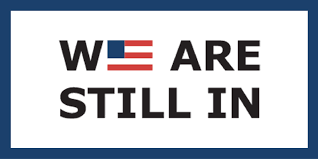Global Networks and Signatory Commitments
Explore our broader networks around the world and how our regional work connects to global initiatives.
Regional Centres of Expertise on Education for Sustainable Development
The Regional Centres of Expertise (RCE) on Education for Sustainable Development (ESD) are multi-sector networks of organizations that support formal, non-formal and informal sustainability education efforts in regional communities and around the world. They facilitate relationships and a knowledge base to support sustainability stakeholders and providers by promoting four major goals: collaborative partnerships and governance; projects and programs; transformative education; and research and development.
A network of RCEs worldwide offer innovative platforms to share knowledge, expertise, and best practices and to promote dialogue on sustainable development efforts and initiatives. As of 2019, there are 168 RCEs around the world, acknowledged by the United Nations University Institute for the Advanced Study of Sustainability (UNU-IAS) and supported by the RCE Service Centre, in Tokyo, Japan.
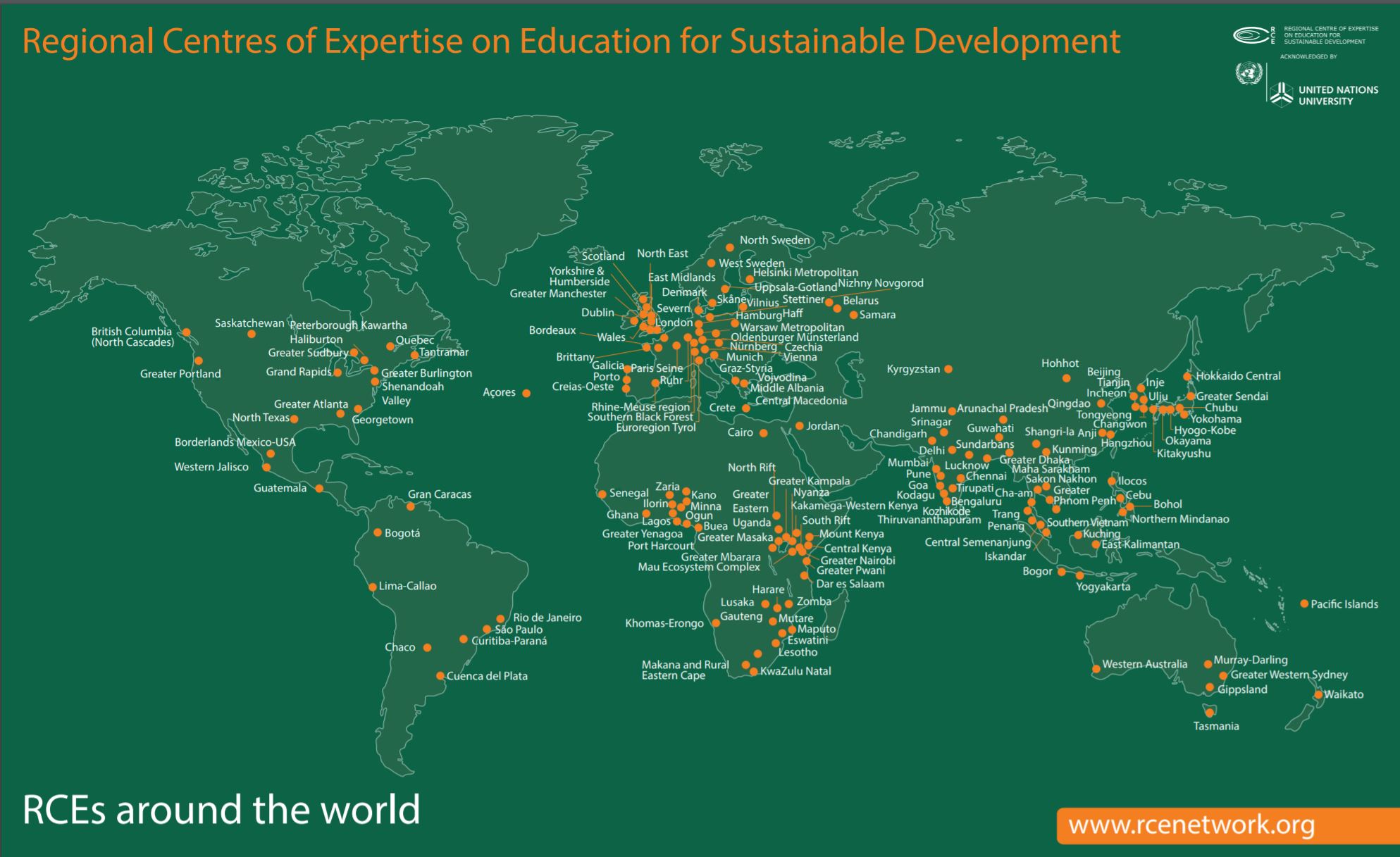
RCEs aspire to translate global initiatives into their local communities. Upon the completion of the Decade on Education for Sustainable Development (DESD) in 2014, RCEs were asked to generate, accelerate, and mainstream ESD by implementing the Global Action Programme (GAP) on ESD and help implement the Sustainable Development Goals (SDGs).
In 2015, all United Nation Member States adopted the Sustainable Development Goals (SDGs) at the General Assembly. According to the Sustainable Development Goals Knowledge Platform, the 17 Goals are:
…an urgent call for action by all countries – developed and developing – in a global partnership. They recognize that ending poverty and other deprivations must go hand-in-hand with strategies that improve health and education, reduce inequality, and spur economic growth – all while tackling climate change and working to preserve our oceans and forests.
As a Regional Centre of Expertise on Education for Sustainable Development, acknowledged in 2013, GPSEN supports Agenda 2030 and the SDGs and the vision to help create a sustainable future. Because we are focused on the greater Portland region, we aspire to facilitate connections that support local initiatives and build a greater Portland, in Greater Portland: Multnomah, Clackamas, Washington, and Clark Counties, in addition to fostering awareness about global goals. Let’s work together to achieve the SDGs by 2030.

Education for Sustainable Development Networks
AASHE
The Association for the Advancement of Sustainability in Higher Education (AASHE) empowers higher education faculty, administrators, staff and students to be effective change agents and drivers of sustainability innovation and enables its nearly 1,000 members to translate information into action by offering essential resources and professional development to a diverse, engaged community of sustainability leaders.
US Partnership for ESD
The U.S. Partnership for ESD consists of individuals, organizations and institutions in the United States dedicated to education for sustainable development (ESD). It acts as a convener, catalyst, and communicator working across all sectors of American society. Its mission is to leverage the UN Decade and post-decade activities to foster education for sustainable development in the United States.
EAUC
The Environmental Association for Universities and Colleges (EAUC) is a strong alliance of universities and colleges, sector bodies and commercial organisations, working together both in the UK and internationally. We stand strong individually, but we make a far stronger impact when we work together. Education has a huge role to play but we need to drive next generation leadership to address next generation sustainability. We need to look wider, internationally, globally, to business and to the next leaders: students.
One Planet Education Networks
One Planet Education Networks (OPEN) strives to transform our economic model, understanding that it is a subsystem of a finite natural system. We need to rethink how we do business to reconsider its role in society and create new business models and partnerships with a broad range of stakeholders in order to solve problems bigger than any one organization. This will require a dramatic shift in the business environment – including policy and regulations – but also in mindsets and values and above all, learning to innovate collaboratively like we have never done before.
The SDG Accord
The purpose of the SDG Accord is twofold:
First it is to inspire, celebrate and advance the critical role that education has in delivering the Sustainable Development Goals (SDGs) and the value it brings to governments, business and wider society.
Secondly, the Accord is a commitment learning institutions are making to one another to do more to deliver the goals, to annually report on each signatory’s progress, and to do so in ways which share the learning with each other both nationally and internationally. An objective is that sector SDG reporting metrics will be presented at the annual UN High Level Political Forum.
We Are Still In (WASI)
Mayors, governors, and business leaders first began signing the We Are Still In declaration in June 2017 as a promise to world leaders that Americans would not retreat from the global pact to reduce emissions and stem the causes of climate change. The bipartisan coalition has since doubled in size, expanding to include over 3,500 representatives from all 50 states, spanning large and small businesses, mayors and governors, university presidents, faith leaders, tribal leaders, and cultural institutions.
We Are Still In signatories represent a constituency of more than half of all Americans, and taken together, they represent $6.2 trillion, a bigger economy than any nation other than the U.S. or China.
We Are Still In – Are You?
Receive the latest opportunities and resources in sustainability education.
Our bi-monthly newsletter contains the latest updates to the Regional Hub and GPSEN programs.
